Department Profile
Department Establishment: 2000
The Department of Computer Science (SF) has a rich history of academic excellence and innovation. Initially established as the Department of Information Technology in 2000, the department was renamed to reflect its expanded focus on cutting-edge areas in computer science and the evolving needs of the tech industry. Our department is dedicated to providing a robust education that combines foundational knowledge with the latest advancements in technology, preparing students for successful careers in the digital world.
Vision:
To produce disciplined, competent, socially committed, talented and morally upright learners in Computer Science through quality education
Mission :
• To incorporate learners with profound knowledge in Computer Science through Outcome Based Education with CBCS under autonomy
• To develop and strengthen the programming skills and in-depth knowledge in the subject and to promote employability in software companies.
• To motivate the students to pursue higher studies by carrying out Project works
• To inculcate social responsibilities among learners through extension activities
| Name of the Programme | B.Sc. Computer Science (SF) |
| Duration | 3 years |
| Intake | 80 |
| Eligibility | 1. For admission to Under Graduate Programme in B.Sc. Computer Science (SF), a candidate must have passed the Higher Secondary Examination of Tamil Nadu or an examination (like the CBSE) recognized by the universities as equivalent thereto, who have opted the following subjects as Part III - Mathematics (100), Physics (100), Chemistry (100), Biology (100) in Plus Two. 2. The upper age limit for admission to B.Sc. Information Technology will be 21 (twenty one) years as on 1st July of the year of admission. However, a relaxation of 5 years is permitted for differently abled as per G.O.Ms.No.239, S.W. dated 3-9-93. SC/ST/BC/MBC/DNC candidates and women candidates may be allowed the age relaxation of 3 years beyond 21 years for the admission into B.Sc. Information Technology. 3. Candidate should have passed the Higher Secondary Examination conducted by the Board of Higher Secondary Education, Government of Tamilnadu or any examinations accepted by the syndicate as equivalent thereto with a. Mathematics and b. At least one of the following subjects Physics ,Chemistry, Commerce and Computer Science |
PLOs -PSOs- PEOs
SYLLABUS 2023
Programme Learning Outcomes (PLOs):
PLO1:Disciplinary knowledge
Apply the knowledge of Arts, Science and Humanities to address fundamental and complex questions appropriate to their programmes.
PLO2: Critical thinking, Problem solving and Analytical reasoning
Make use of appropriate knowledge and skills to identify, formulate, analyze and solve problems in order to reach substantiated conclusions.
PLO3: Research related skills and scientific reasoning
Critically analyze research processes, products and practices with a view of strategic use of data in their field.
PLO4: Communication skills and Digital literacy
Demonstrate skills in oral and written communication and make use of ICT in various learning ambience.
PLO5: Team work and Leadership quality
Interact productively with people from diverse backgrounds as both leaders/mentors and team members with integrity and professionalism.
PLO6: Multicultural competence with Moral and ethical awareness
Defend the society against gender and environmental issues with moral and ethical awareness.
PLO7: Self-directed and Life-long learning
Formulate their own educational needs in a changing world in ways sufficient to maintain their competence and to allow them to contribute to the advancement of knowledge.
Programme Specific Outcomes (PSO):
By the completion of the B.Sc. Computer Science programme, the learners will be able to
PSO1: exhibit the programming skills, prove expertise in core areas of Computer Science and work with knowledge drawn from multiple disciplines.
PSO2: comprehend, design, develop and innovate solutions to problems relatedtoComputer Industry.
PSO3: apply standard practices and strategies in softwaredesign and development usingopen-ended and other programming environments.
PSO4: communicate effectively the evolutionary changes in computing technologies.
PSO5: collaborate and be a part of an effective team and lead the team to accomplish their goals.
PSO6: understand, communicate and effectively interact with people across cultures and perform according to ethical principles.
PSO7: engage in sustained learning through higher studies, self-directed learningand adapt to changes in computing technologies.
Programme Educational Objectives (PEOs):
The Graduates will
PEO1: be competent software professionals, take up progressive careers in industry and pursue higher studies
PEO2: be proficient in developing innovative solutions to complex real life problems using existing and novel technologies and become ethical and responsible towards themselves, coworkers, society and nation
PEO3: adapt to new technologies and constantly upgrade their skills to be a successful Entrepreneur
SYLLABUS 2020
PO:
Programme Outcomes are narrower statements that describe what students are expected to know and be able to do upon the graduation. These relate to the skills, knowledge and behavior that students acquire in their study through the programmes.
PO1: Disciplinary knowledge
Apply the knowledge of Arts, Science and Humanities to address fundamental and complex questions appropriate to their programmes.
PO2: Critical thinking, Problem solving and Analytical reasoning
Make use of appropriate knowledge and skills to identify, formulate, analyze and solve problems in order to reach substantiated conclusions.
PO3: Research related skills and scientific reasoning
Critically analyze research processes, products and practices with a view of strategic use of data in their field.
PO4: Communication skills and Digital literacy
Demonstrate skills in oral and written communication and make use of ICT in various learning ambience.
PO5: Team work and Leadership quality
Interact productively with people from diverse backgrounds as both leaders/mentors and team members with integrity and professionalism.
PO6: Multicultural competence with Moral and ethical awareness
Defend the society against gender and environmental issues with moral and ethical awareness.
PO7: Self-directed and Life-long learning
Formulate their own educational needs in a changing world in ways sufficient to maintain their competence and to allow them to contribute to the advancement of knowledge.
PSO
Programme Specific Outcomes denote what the students should be able to do at the time of graduation. They are programme specific. It is mandatory that each PO should be mapped to the respective PSO specified in the programme in order.
By the completion of the B.Sc.. Information Technology programme, the learners will be able to
PSO1: apply the acquired technical knowledge of Information Technology to solve problems in different fields of Information Technology.
PSO2: identify, design and develop software/hardware solutions to meet the needs of IT industry.
PSO3: select and apply recent techniques and tools necessary for integrating IT-based solutions into the user environment effectively.
PSO4: create visual presentations and maintain project documents as per the technical standards.
PSO5: function effectively as a team member or a leader to accomplish software development comprises of multidisciplinary team.
PSO6: follow the ethical principles involved in IT research and industrial practices.
PSO7: engage in life-long learning process by updating the knowledge of individual with the upcoming software tools and techniques.
PEO:
The Graduates will
PEO1: design, develop and test IT based software systems in software industries /institutions and excel in higher studies.
PEO2: utilizethe future technologies to provide solutions to IT based problems and sustain research activities with ethics, managerial skills and quality control required to maintain professionalism in the IT industries.
PEO3: adapt to recent trends of IT by life-long learning and become self employed by developing software.
Faculty Details
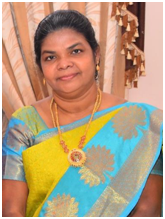
Mrs.P.Prescilla
MCA,M.Phil
Assistant Professor & Head
E-Mail prescilla-it@sfrcollege.edu.in Area of Specialization Network Security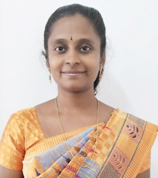
Ms.A.Nandhini
MSc.,
Visiting Faculty
E-Mail nadhini-cscsf@sfrcollege.edu.in Area of Specialization Computer Networking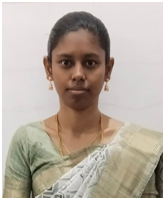
Mrs.S.NusrathNajeeba
M.Sc., DMT.,
Visiting Faculty
E-Mail nusrathnajeeba-cscsf@sfrcollege.edu.in Area of Specialization Natural Language Processing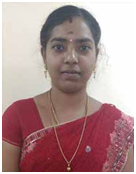
Mrs.R.Valliyammal
M.Sc.,
Visiting Faculty
E-Mail valliyammal-cscsf@sfrcollege.edu.in Area of Specialization Data MiningRemarkable Activities

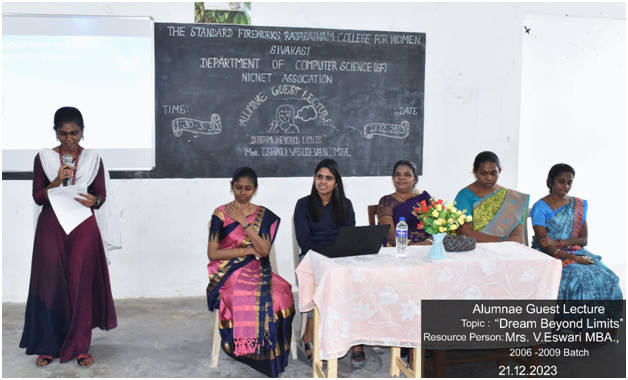
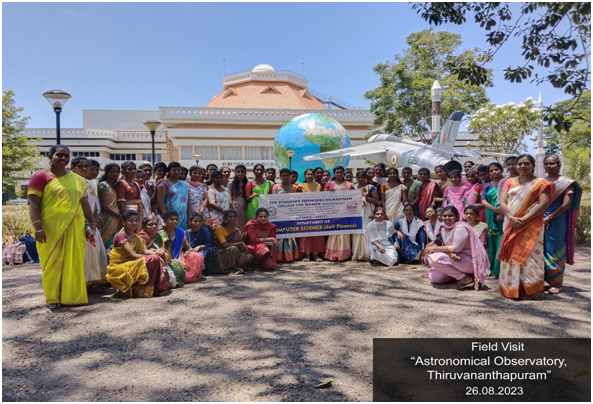
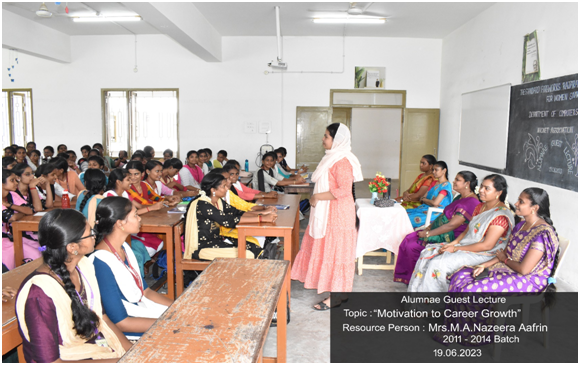
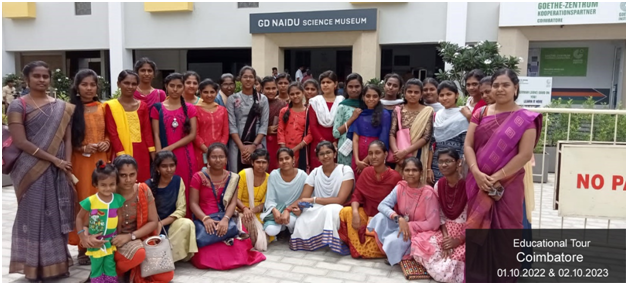
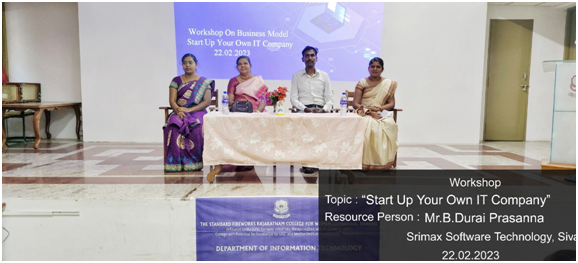
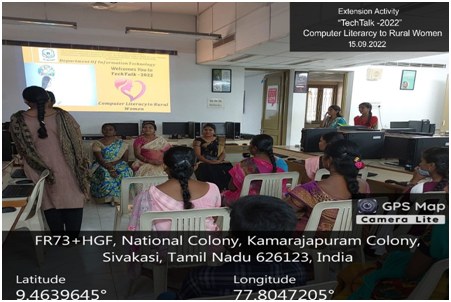
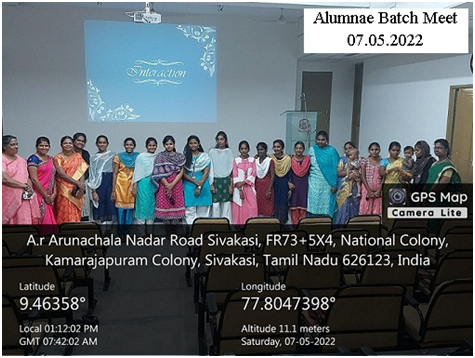
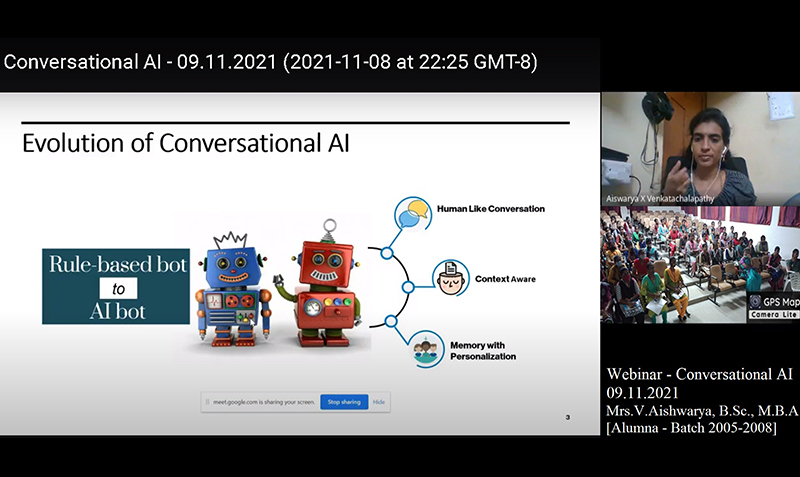
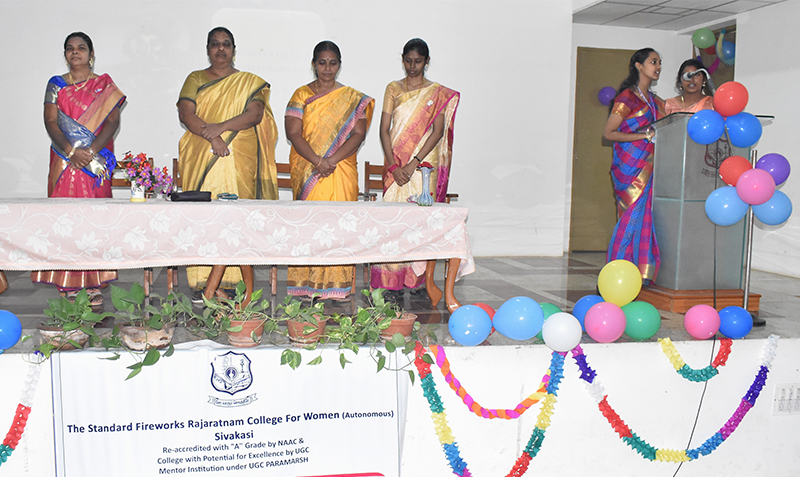
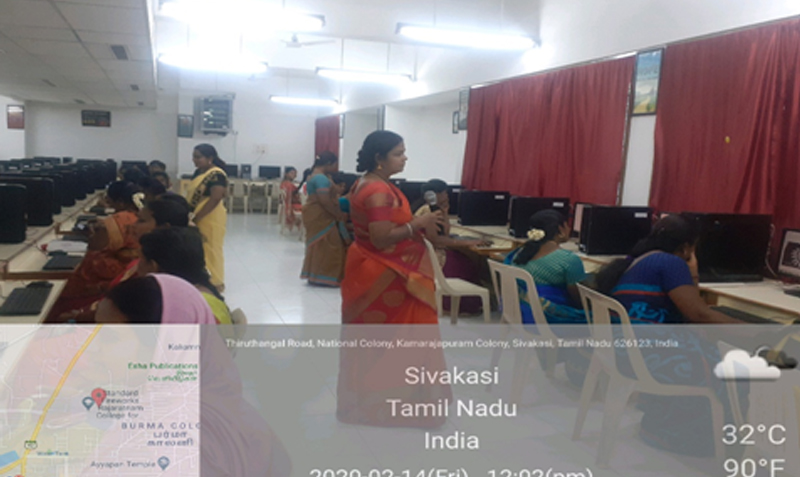
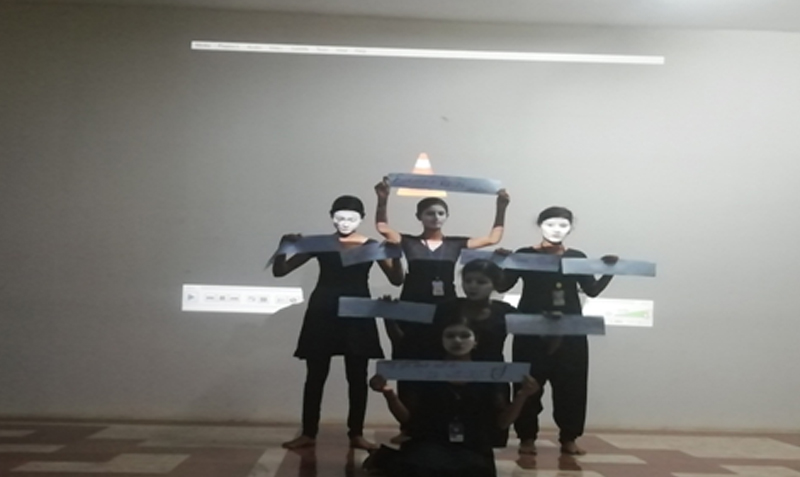
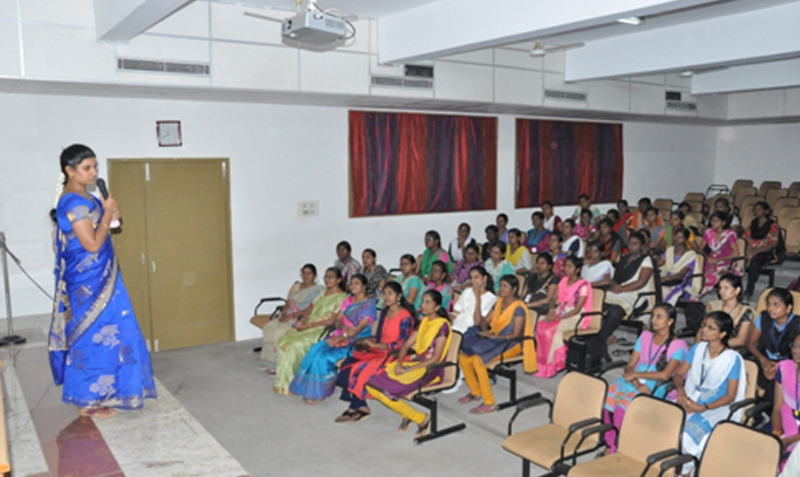
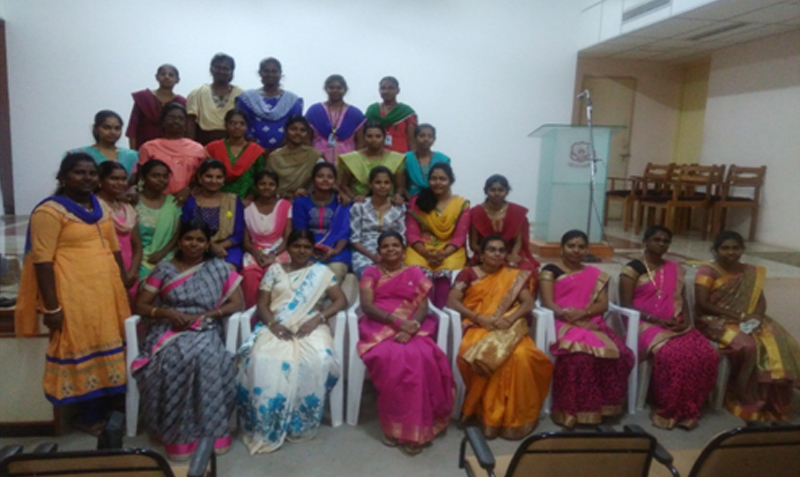
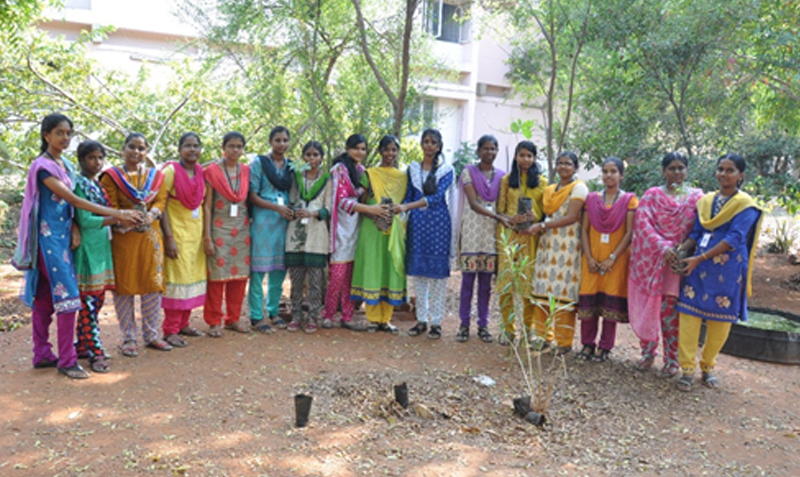
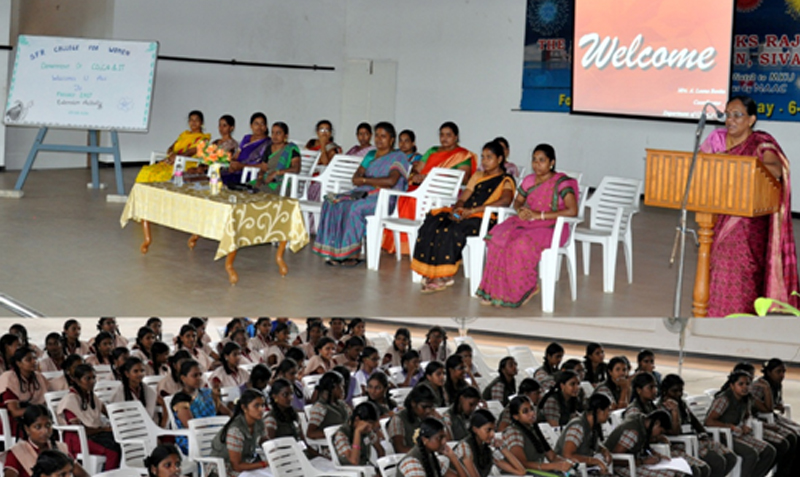
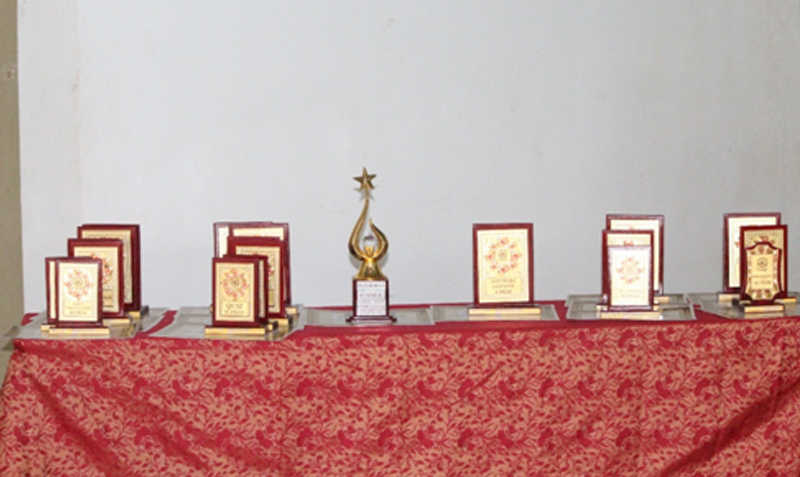
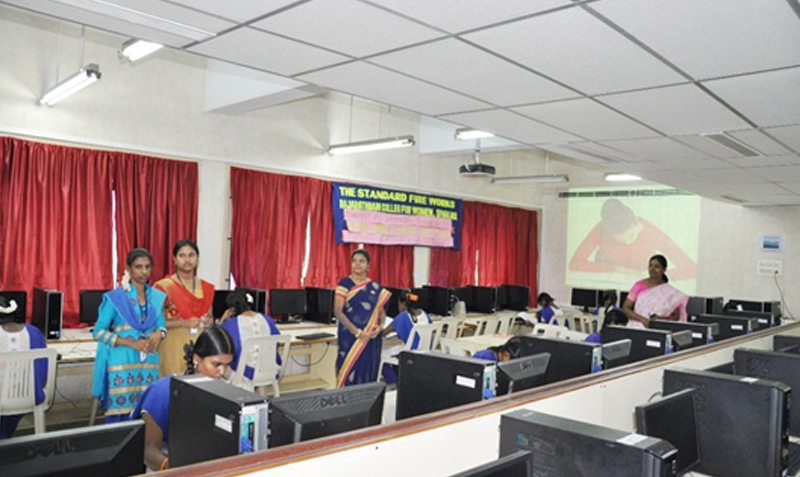
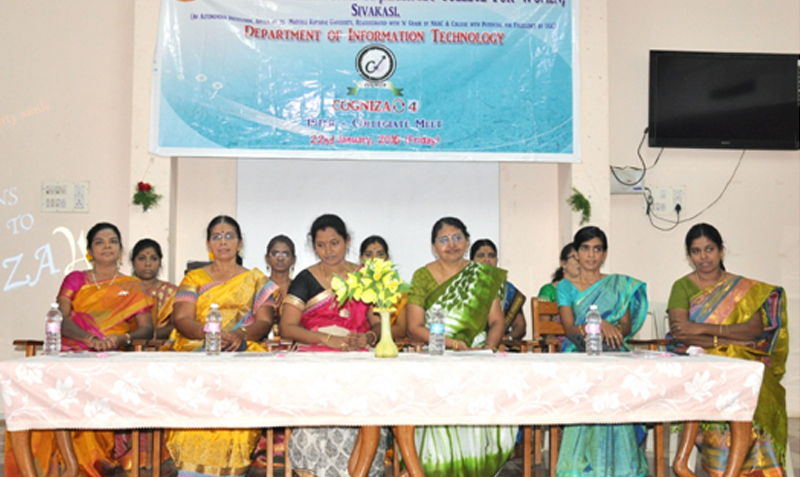
Student Achievements
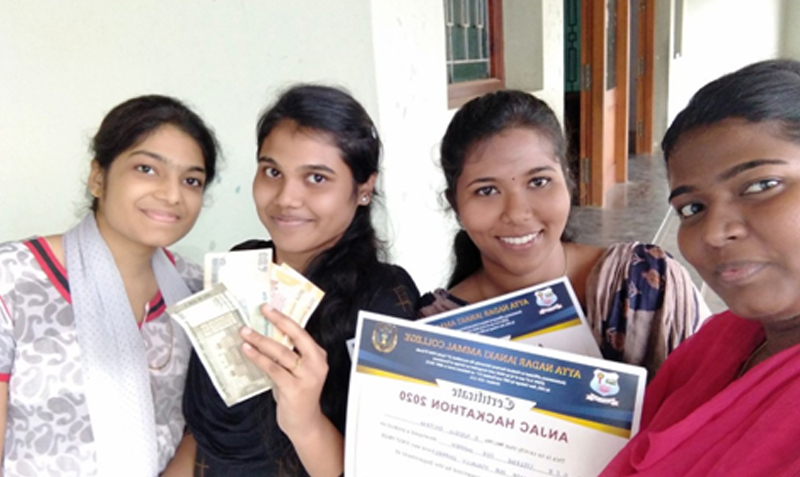
III B.Sc.IT developed a product on “Obstacles Detector for Visually impaired” in the ANJACcollege organized by Department of Computer Applications
-FIRST PRIZE -06.02.2020
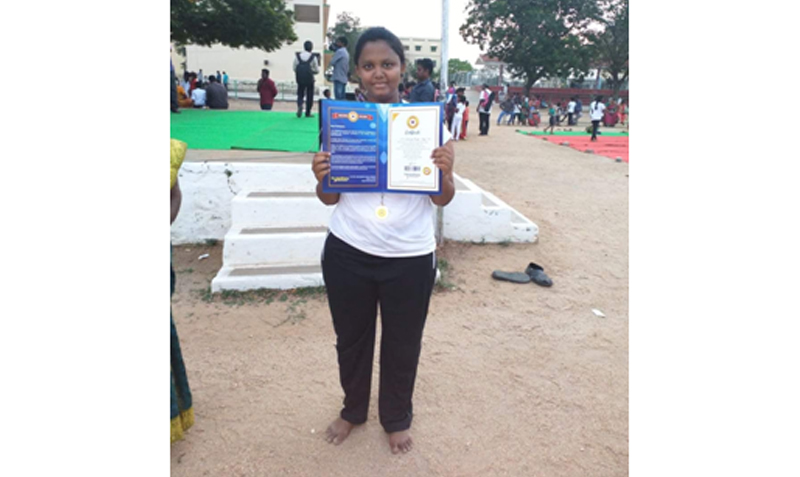
NOBLE WORLD RECORD :V.M.SathyaPriya ( I B.Sc. IT) 04.05.2019
100 Students Group World Record performed 100 times of SURYA NAMASKAR IN 20 MINUTES
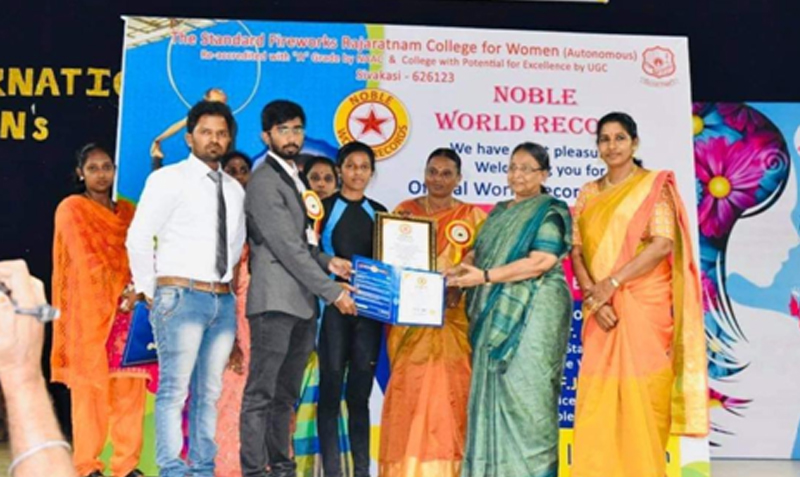
NOBLE WORLD RECORD : R.MADHU MITHA ( I B.Sc.IT) - 08.03.2019
Longest duration(5 Minutes) to hold DHANURASANA IN RING
Contact Us
Thiruthangal Road , Sivakasi - 626123 , Tamil Nadu , India
Telephone Number
+91 4562-220389 FAX Number
+91 4562-226695 Email ID
sfrc@sfrcollege.edu.in
